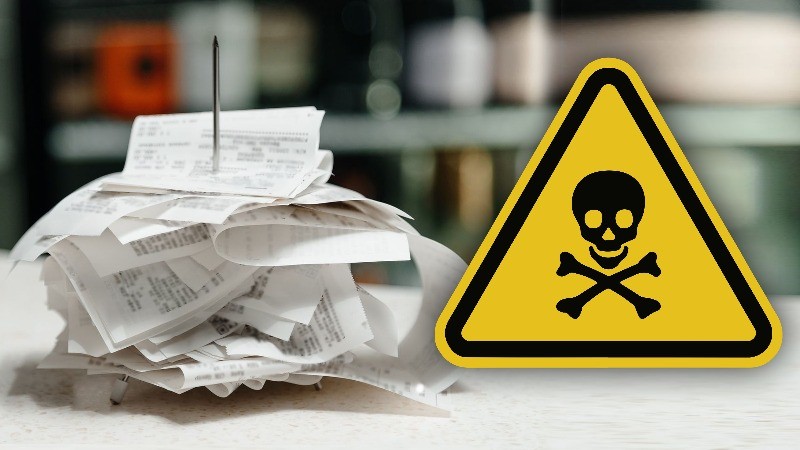
You might have scrolled through some reels with social media influencers claiming that paper receipts are toxic for your health, warning, "Do not touch this." They say that these paper receipts have a "toxic" chemical called Bisphenol A, or simply BPA. It gets absorbed into the skin and can lead to health problems like infertility, hormonal imbalances, and various types of cancers. So, the question is, are all these claims right?
Experts say that this may not be entirely incorrect. Paper receipts these days do contain Bisphenol, which is a hormone disruptor, when exposed to the skin, causes fertility problems, insulin resistance, among other issues.
Notably, this BPA was replaced by another chemical, i.e., Bisphenol S or BPS. Today, about 85% of paper receipts contain BPS. There is not much known about BPS; what effect does it have on the body, and how much exposure might be safe? Moreover, the risk from these paper receipts depends largely upon how often you touch them, and that too, for how long.
Paper receipts are printed on thermal paper, which is coated with dyes and chemical developers. When reacted with heat, they create a printed image. You might have observed a powdery feeling when you touch the thermal coating at the back of the receipt. It used to be BPA.
BPA is very much like estrogen, or poses to be. Estrogen is a hormone that interacts with many cells of the body, including those of the reproductive system as well as the brain. Now, when BPA comes in contact with the body, the cells are tricked into believing that it might be estrogen. In that case, it leads to effects like insulin resistance, type 2 diabetes, obesity, and infertility issues.
Coming over to BPS, is it safer? Well, BPS also poses as estrogen; therefore, it might cause similar health effects, particularly related to estrogen. When tested on mice, which were fed with BPS levels as much as humans are exposed to each day, it was found that the females had a tough time getting pregnant. They even had fewer babies as compared to the ones unexposed.
Well, even if these chemicals are not deadly, they are contributing enough to health disorders. Therefore, one must avoid touching paper receipts and other products that contain these toxic chemicals.
If you do, you must not mind touching it for a few seconds or minutes, as it takes a couple of hours for it to get absorbed into the skin.
Wash your hands thoroughly to wipe off the dust or powder that comes with the thermal paper.
Do not use sanitizer, as it will only enhance the absorption further.
Make sure that you hold the receipt with the tip of your fingers. Do not leave it off at any other spaces as its dust might be shed elsewhere. Instead, throw it away as soon as you can.
But if one works in a business where billing is a part of the job, then they must wear nitrile gloves to minimize exposure.
You can even start asking for electronic receipts after you shop for anything. There's nothing to worry about; you just have to avoid it as much as you can. We are somehow on the safer side, as we can choose to avoid. What's concerning is that the cashier at the billing counter deals with it every day. How much risk and damage does that level of exposure have...